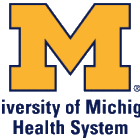
Childhood Obesity, Drug Abuse Top Health Concerns Adults Have About Children
|
Childhood obesity and drug abuse are now the top health concerns for kids rated by adults, according to a new poll by University of Michigan’s C.S. Mott Children's Hospital. The fifth annual survey of the top 10 health concerns for kids asked more than 2,000 adults of different races and ethnicities to rate 23 different health concerns for children living in their communities. Most of the top concerns pertain to long-recognized risky behaviors for youth: drug, alcohol and tobacco use, as well as teen pregnancy. The recent results also suggest that parents are paying attention to new safety risks associated with the Internet and other technologies, including sexting. “The perception of drug abuse as a big problem matches recent national data showing increasing use of marijuana and other drugs by U.S. teens,” Matthew Davis, M.D., director of the National Poll on Children’s Health, said in an article on the University health system website.



